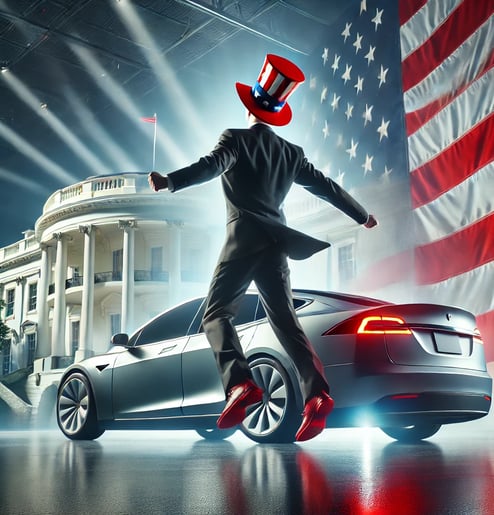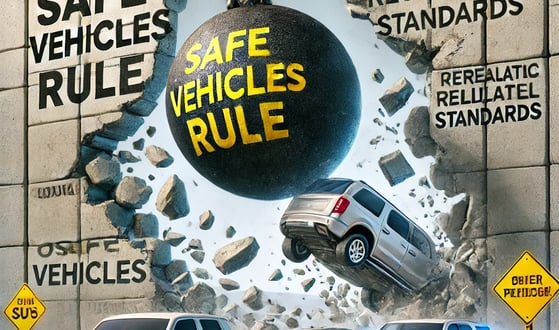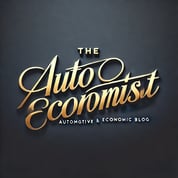Trump's Common Sense Rule vs. The Woke Car Makers: Guess Who's Winning?
In this no-holds-barred piece, we uncover how the auto industry’s so-called “leaders” gambled with America’s future by siding with California’s fantasy emissions standards. From Ford’s phony climate claims to GM’s flip-flopping, we expose the political games that put profits before practical solutions. Meanwhile, companies like Toyota and Tesla—who stuck with Trump’s common-sense policies—are thriving, while the others are left scrambling. If you’re tired of the political posturing and want the real story, this article will set the record straight.
Ladies and gentlemen, let me remind you of a fundamental truth: Donald Trump didn’t just step into the presidency—he charged in, swinging a wrecking ball at the bloated, bureaucratic monstrosity that Washington had become. One of his boldest moves? Rolling back Obama’s pie-in-the-sky Corporate Average Fuel Economy (CAFE) standards. Let’s not sugarcoat it—those mandates were nothing short of economic sabotage disguised as environmental policy.
Under Obama’s grand fantasy, automakers were supposed to hit 54.5 miles per gallon by 2025. Sounds nice, doesn’t it? Except there was one glaring problem: reality. America doesn’t run on fantasy. It runs on trucks, SUVs, and the freedom to drive what we want without the government’s finger wagging in our faces. Trump’s SAFE Vehicles Rule saved an industry that was being dragged to its knees by liberal regulators with no regard for how businesses—and real people—actually operate.
The Realists: Standing with Trump
Then we had the realists—Toyota, Fiat Chrysler (now Stellantis), and, for a while, General Motors. These companies understood something the virtue signalers didn’t: the Obama-era standards were a financial death sentence. Toyota called for a unified national standard. Fiat Chrysler stuck to their guns, focusing on trucks and SUVs—the vehicles Americans actually buy. And General Motors, at least at first, backed Trump’s rollback, recognizing that survival comes before playing politics.
But here’s the twist: even GM couldn’t resist the lure of political opportunism. By late 2020, they flip-flopped, suddenly pledging allegiance to stricter standards. Why? They saw the winds shifting in Washington and decided it was better to chase subsidies than stand firm.
The Great Divide: Who Stood Where
Now, here’s where the story gets juicy. You’d think every automaker would’ve rallied around Trump’s common-sense policies, but no. We had a handful of virtue-signaling CEOs eager to hop into bed with California regulators. Yes, I’m looking at you, Ford, Honda, BMW, and Volkswagen. These companies struck a deal with California to follow stricter emissions standards than Trump’s federal rollback. They sold it as a moral stand for the environment, but let’s be real—it was nothing more than political theater.
Ford wanted to play the hero, claiming they were “addressing climate change.” Honda talked about corporate responsibility. BMW and Volkswagen? They joined the same song and dance, promoting their commitment to electrification. Folks, this wasn’t about saving the planet—it was about looking good for the California elite while sticking it to Trump. These automakers gambled that California’s way would win out, and they could parade around as the enlightened ones in the process.
Let me tell you what they forgot: Americans don’t want overpriced, underpowered cars. They want freedom of choice. They want vehicles that fit their lives, not the woke fantasy lives cooked up in Sacramento.
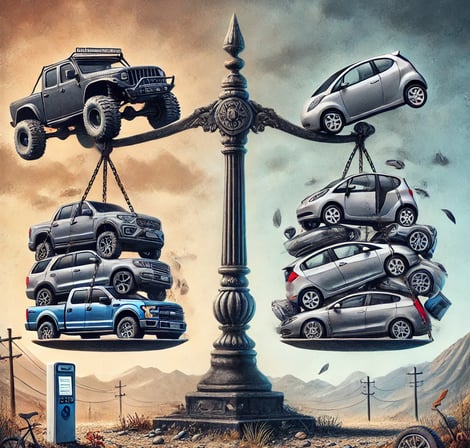

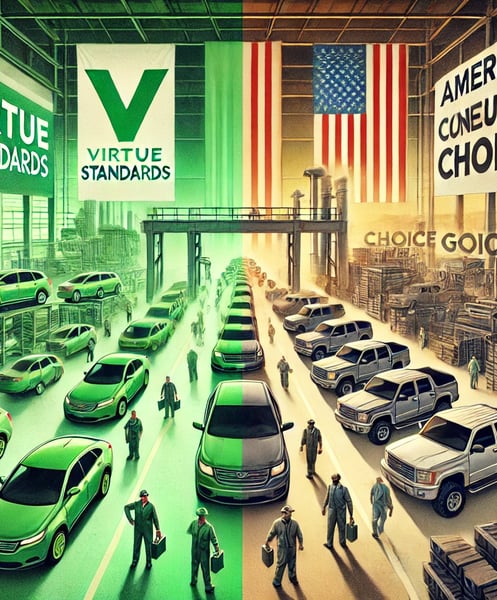

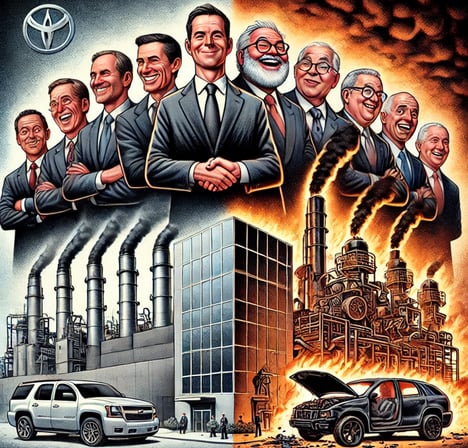

Tesla: The Untouchable Outlier
And then there’s Tesla. Oh, Elon Musk, the disruptor. Tesla thrived under Trump’s rollbacks, not because they needed them—Tesla’s all-electric fleet is already light-years ahead of emissions mandates—but because it gave Musk a platform to posture.
Here’s the kicker: Tesla made millions selling carbon credits to those same automakers scrambling to meet California’s standards. Musk got rich off their failure to adapt while and now partners with Trump. Genius? Sure. Starting the game plan well before 2023? You bet.
The Trump Effect
Trump’s rollbacks weren’t about abandoning the environment—they were about injecting sanity into a system that had lost touch with reality. His SAFE Vehicles Rule recognized a fundamental truth: Americans want cars that work for them. Not cars that impress California bureaucrats. Not cars that are so overpriced that the average family can’t afford them.
But let’s not forget the ones who stood against him. Ford, Honda, BMW, and Volkswagen turned their backs on common sense and sided with California. They prioritized optics over their customers, political points over practicality. And now? Now they’re scrambling.
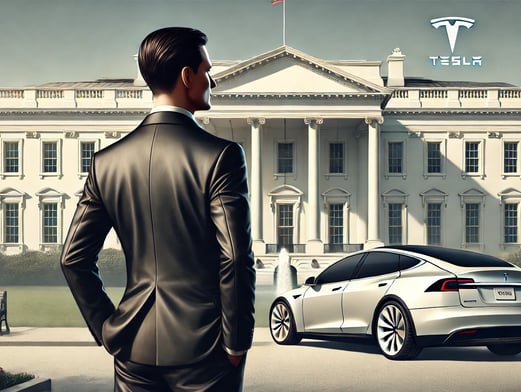

The Consequences
Under Biden, the game has changed again. California’s patchwork rules are back in play, and Biden’s new emissions targets are even more aggressive than Obama’s. The same automakers who claimed they didn’t need Trump’s rollbacks are now begging for relief. Supply chain issues, infrastructure gaps, high costs—these are the problems they’re whining about today. But guess what? They bet against Trump, and now they’re paying the price.
Meanwhile, Tesla and Volkswagen are eating their lunch, forging ahead with long-term strategies while the others scramble to catch up.
The Real Question
Here’s the question no one in the mainstream media wants to ask: Why isn’t anyone holding these automakers accountable? Why aren’t we talking about their flip-flopping, their failure to deliver, and their blatant political games? Automotive analysts seem to have the memory span of a goldfish. They’ll praise Ford one day and forget the next that the company couldn’t deliver on its promises.
Folks, the auto industry is shaping itself based on politics, not performance. And the ones who played games with Trump’s rollbacks are now the ones crying for help under Biden. Maybe it’s time to leave them out of the room. Maybe it’s time to reward the companies that stayed the course—like Tesla, Volkswagen, and others who stuck to their guns and adapted without whining.
The truth is simple: if you can’t compete, don’t expect a handout. Trump gave the industry a chance. Some took it. Others threw it away. And now, the consequences are here. You reap what you sow.
